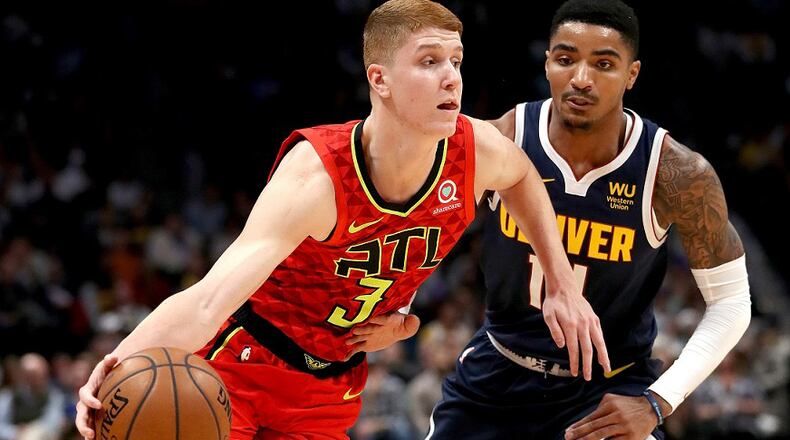Kevin Huerter’s MRI on his left shoulder was evaluated by Hawks’ team doctors and he was diagnosed with a “left rotator cuff strain with an associated shoulder capsule strain,” the Hawks announced.
He will go through rehab and treatment and be re-examined in two weeks. That would put Huerter out until at least the Hawks’ game in Milwaukee Nov. 27.
The team does not play on Nov. 28 and plays in Indianapolis Nov. 29, followed by a game in Houston Nov. 30.
In the third quarter of the Hawks’ 125-121 win in Denver on Tuesday, Nikola Jokic was called for a foul after bumping Huerter’s left arm while Huerter was making a passing motion across his body. Huerter immediately went down, grabbing his shoulder and left arm in pain, and did not return to the game.
On Wednesday, the Hawks announced Huerter had a “left shoulder injury,” and that X-rays taken in the Nuggets arena were negative. Huerter had the MRI done earlier Wednesday in Denver and returned to Atlanta.
Earlier Wednesday at the team’s shootaround in Phoenix, coach Lloyd Pierce had said that Huerter avoided tearing anything in the shoulder, which is a good sign for the second-year player.
“The MRI, I don’t think there was any signs of a tear,” Pierce said. “I know he’s seeing our team doctors today. But that’s all I got is there was no tear. Of what, I don’t know. His shoulder, I don't know what the terms of it (are), but that was the good of the news. There is some damage, and we’re getting some images done with our team doctors in Atlanta.”
Pierce’s first impression was that Huerter had avoided the “worst-case scenario.”
About the Author
Keep Reading
The Latest
Featured


